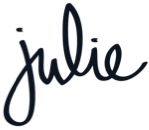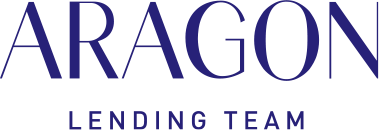Glossary of Common Real Estate and Mortgage Terms
We created the easiest process to request and submit mortgage info!
Start with our online application
book a call with one of our experienced mortgage nerds
Glossary of Common Real Estate and Mortgage Terms
ADJUSTABLE RATE MORTGAGE (ARM): The interest rate is tied to a financial…
In a matter of days we were approved for an FHA loan
Luckily we found Julie
I’ve used Julie’s services twice
Julie was a breath of fresh air. She’s smart, experienced, easy to communicate with
My hubby and I worked with Julie to purchase our first home and it was awesome
THANK YOU JULIE AND TEAM for everything!
Julie is a ROCKSTAR!!!
CONTACT
CONNECT
- ADJUSTABLE RATE MORTGAGE (ARM): The interest rate is tied to a financial index making the monthly mortgage payment go up or down over time.
- ANNUAL PERCENTAGE RATE (APR): The percent of interest that will be charged on a home loan.
- APPRAISAL: A report highlighting the estimated value of the property completed by a qualified 3rd party. This is typically done for the benefit of the buyer or the buyer’s lender to ensure the property is worth the purchase price.
- ASSOCIATION FEE/HOA FEE: In addition to a mortgage, certain housing communities such as townhomes have a monthly fee associated with maintaining the common areas and amenities.
- BALLOON MORTGAGE: A long-term mortgage loan that starts small but has a large payment due at maturity.
- BREAK EVEN POINT: The point in time where the totaled monthly savings from a refinance equals the various upfront costs of refinancing. Similarly can be used as the point in time when a borrower will break even by buying down an interest rate with mortgage points (see below definition).
- CLOSING COSTS: The buyer and seller have expenses associated with the transaction other than that of the actual cost of the home. For example, the buyer has a variety of fees due for obtaining a new loan and the seller must pay commission to both agents.
- CLOSING DISCLOSURE: A form that provides the final details about the mortgage loan. It includes loan terms, projected monthly payments, and how much the extra fees will be.
- CLOSING: When the new title to the _property is officially recorded by the County Recorder’s Office and ownership of the property transfers to the new buyer.
- COLLATERAL: Something of value (in this case your home) that is held to ensure repayment of a mortgage or loan.
- COMMISSION: A percent of the sale price of the home that is paid to agents. The seller pays commission to both the buyer and listing agent.
- COMPARABLES: Homes in the area of interest that have recently sold that have similar features.
- CONTINGENCIES: Conditions which must be met in order to close. Contingencies are typically tied to a date, referred to as a deadline. If the contingency is not satisfied the contract may be canceled.
- CONVENTIONAL LOAN: A loan program backed by Fannie Mae or Freddie Mac, not one of the government agencies.
- COUNTEROFFER: The response from the seller in regard to an offer.
- DEBT TO INCOME RATIO (DTI): A lender will evaluate whether a borrower’s income is large enough to handle their payments on existing debts plus their new mortgage payments.
- DOWN PAYMENT: A percent of the cost of the property that is paid up front as a part of the mortgage.
- EARNEST MONEY: The deposit made from the buyer to the seller when submitting an offer. This deposit is typically held in trust by a third party. Upon closing, the money will generally be applied to the down payment or closing costs.
- EQUITY: The difference in the market value of a home versus what is owed on the home.
- ESCROW: This term has multiple meanings; earnest money is typical held by a third party until closing in “escrow.” It can also be referred to as the time period from when the contract is written and accepted by the seller to when the home sale actually closes. The escrow officer represents that third party. They collect any funds necessary, arrange a notary for the signing of your loan docs and will be responsible for disbursing funds to the appropriate person(s).
- FHA LOAN: A mortgage that is financed through a private lender and insured by the Federal Housing Administration, often requiring a lower down payment and income to qualify.
- FIXED RATE MORTGAGE: The interest rate will remain the same for the entire life of the mortgage.
- HOME EQUITY LINE OF CREDIT (HELOC): A loan or line of credit that your lender may offer using the equity in your home as collateral.
- HOME INSPECTION: The process in which a professional inspects the seller’s home for issues that may not be readily apparent, and then creates a report for the buyer to review.
- HOMEOWNER’S INSURANCE (HOI): A policy that both covers liability (if someone were to be injured on your property) and covers the home from damage. Policies can vary but mortgages typically require homeowner’s insurance and, depending on the property and lender, certain types of coverage may be required to get financing.
- HOME PROTECTION PLAN: A one-year service that covers the cost of repairs or replacements to items covered in the plan (such as stoves, dishwashers, A/C, heaters, etc.).
- HYBRID LOAN: A loan that starts with a fixed rate period, then converts to an adjustable rate.
- IMPOUNDS: These are monthly payments made as part of your mortgage payment. The most commonly impounded items are hazard insurance and property taxes, however you can also impound other types of insurance. The impounds are held in an impound account (this is just another type of “escrow” account) and are paid out when these items come due.
- LOAN-TO-VALUE (LTV): the amount of the mortgage vs the home’s value.
- MORTGAGE AMORTIZATION: The split in a mortgage payment representing the loan’s interest and the principal amounts. When applying for a mortgage, you should receive an amortization schedule which breaks down the interest and principal payment amount.
- MORTGAGE BROKER: an individual or group that does not work for a single mortgage lender (see mortgage lender below). A broker has access to multiple lenders, which allows them to look at multiple options to find the best deal possible. Brokers sometimes have access to better rates but they may not have access to all of the in-house programs that a lender does.
- MORTGAGE INSURANCE (AKA PMI): Insurance written in connection with a mortgage loan that protects the lender in the event the borrower cannot repay their loan. This is usually not required if the borrower has 20% or more for the down payment.
- MORTGAGE LENDER: an institution that offers loan products.
- MORTGAGE NOTE: A promise to pay a sum of money at a standard interest rate during a specific term that is secured by a mortgage.
- MORTGAGE POINTS (AKA DISCOUNT POINTS): Mortgage points are fees that are paid to the mortgage lender for a lower interest rate. See a more detailed explanation here.
- MULTIPLE LISTING SERVICE (MLS):The national list of real estate properties that are available for sale. These are the most reliable sources to receive up-to-date listing information.
- PITI: The sum of the mortgage principal, interest, taxes and insurance. For most borrowers this is effectively their mortgage payment. It can also be broken down to just P&I (Principal & Interest) or T&I (Taxes and Insurance).
- PRE-APPROVAL OR PRE-QUALIFICATION: The process in which a lender makes an initial evaluation of how much money a buyer might be qualified to borrow based on the preliminary financial information provided. This gives the seller more confidence in the buyer’s ability to close escrow, but is not a guarantee that the loan will be approved.
- PRINCIPAL: The underlying amount of the loan which is actually borrowed.
- PROPERTY TAXES: These are the taxes that are enforced by the city, town, county, and state government entities. Sometimes they are included in the total monthly mortgage payment paid to the lender and sometimes they are paid directly by the homeowner.
- REO: Real estate owned properties or foreclosed properties currently owned by a financial institution such as the bank that made the loan to the previous owner.
- REVERSE MORTGAGE: This is specifically for seniors and it allows them to convert the equity in their home to cash.
- SELF SUFFICIENCY TEST: When qualifying a multi-unit property for an FHA mortgage, 75% of the total market rent for all the units has to be more than the total monthly mortgage payment. That total payment includes: principal, interest, taxes, mortgage insurance (PMI) and any other insurance (like homeowners insurance).
- SHORT SALE: A situation when the seller’s lender is willing to accept an offer and allows the sale to be completed for an amount less than the mortgage amount owed by the seller.
- TITLE: A legal document proving current and proper ownership of the property. Also referred to as a Title Deed, this document highlights the history of property ownership and transfers.
- UNDERWRITING: The process in which the potential home buyer is evaluated for their financial ability to obtain and repay a loan. This normally includes a credit check and an appraisal of the property.
- VA LOAN: Special no down payment loans that are available to Americans who have served in the Armed Forces. These loans are issued by private lenders and are guaranteed by the Department of Veterans Affairs (VA).
Hope this info helps and don’t forget, we’re here to help if you have any more questions.

PS Check out our simple eval process where you can choose whether you want to: get real rates specific for your scenario (beware of teaser rates!), see how much home you can afford, get pre-approved, or quickly submit your contact info so we can get back in touch.

